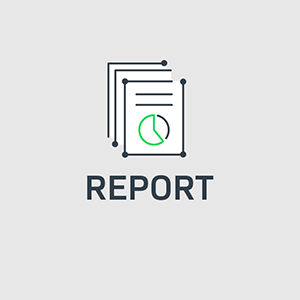If you’re in the software industry, then you already know that piracy is big business. The BSA recently estimated the commercial value of unlicensed software to be $46.3 billion.
It’s no surprise, then, that many software vendors think that stopping piracy is one of the best ways to protect software revenues. That’s why so many companies have implemented complex solutions to attack the problem, including everything from aggressive licensing to software protection.
Unfortunately, going too far with these tactics can ultimately end up annoying your customers more than they deter the hacker – a lose/lose proposition that can sink your company. That’s why it may be time to completely rethink how we fight software piracy. While anti-piracy measures have their place, it may be more useful (and lucrative) to turn the model on its head and consider a layered approach that leverages usage analytics.
Changing How We Think of Pirates
If you ask the average business owner to describe a software pirate, they’ll likely tell you about some degenerate loser, huddled up in his messy bedroom, desperately trying to steal what they’ve worked so hard to earn.
While there may be some truth to that myth, the average pirate looks a little different. In fact, it may shock you to learn that the average pirate…looks a lot like your average customer.
Think about it. If a pirate is after a piece of software, then you can assume that A.) they’re already well-informed about it, and B.) they want it.
So why didn’t they buy it from you? That’s the question you have to ask yourself if you want to stop piracy.
In other words, a pirate is simply a leak in your sales funnel. They found out about your product, were sold on its benefits, but for some reason they weren’t convinced to pay you.
You may be tempted to say that they’re merely cheap, or inherently immoral. That might be the case for a few, but in many cases, it’s a little more complex than that.
Why Are People Pirating Your Software?
There are traditionally 3 types of pirates: committed pirates, soft pirates, and pirate victims. Each of these has different reasons why they pirate software.
The committed pirates are people who knowingly and enthusiastically steal software from businesses like yours. You’re not likely to change their minds, so you’re better off either aggressively targeting them, or writing them off as a cost of doing business.
The other two types of pirates, however, are different. Soft pirates steal software as a last resort, either because they’re bargain hunting or test-driving. Pirate victims, on the other hand, would willingly pay you for the software, but have no idea that the software they’re using is pirated.
Both of these pirates represent a significant revenue opportunity.
For example, if you think that you have a problem with soft pirates, and you suspect sticker shock may be why, then you can offer these people discounts to entice them to buy.
Or, if you think many of your pirate users are actually victims, you can send them messages alerting them to the fact that their software is pirated, and instructing them on how to correct the situation.
Revenera Compliance Intelligence can help you with both types of pirates. If the software detects unlicensed usage, it informs the user and lets them know how they can remedy the problem.
Compliance Intelligence can add leads to your CRM for direct follow up, or can redirect users to a shopping cart, where they can purchase a licensed version of your software.You can even offer them a discount. It’s the easiest way to plug a leak in your sales funnel, and it does so without alienating legitimate users.
Making Piracy a Thing of the Past
If you have a significant problem with software piracy, it may be time to look at your sales funnel instead of your security team. There’s a good chance that you’re missing out on significant revenue, simply by ignoring the potential of your pirates.
If you want to learn how to reclaim some of this lost revenue, contact us to discuss your options. We’ll help you get your money back – and show you how a pirate is simply a customer who hasn’t paid you…yet.


